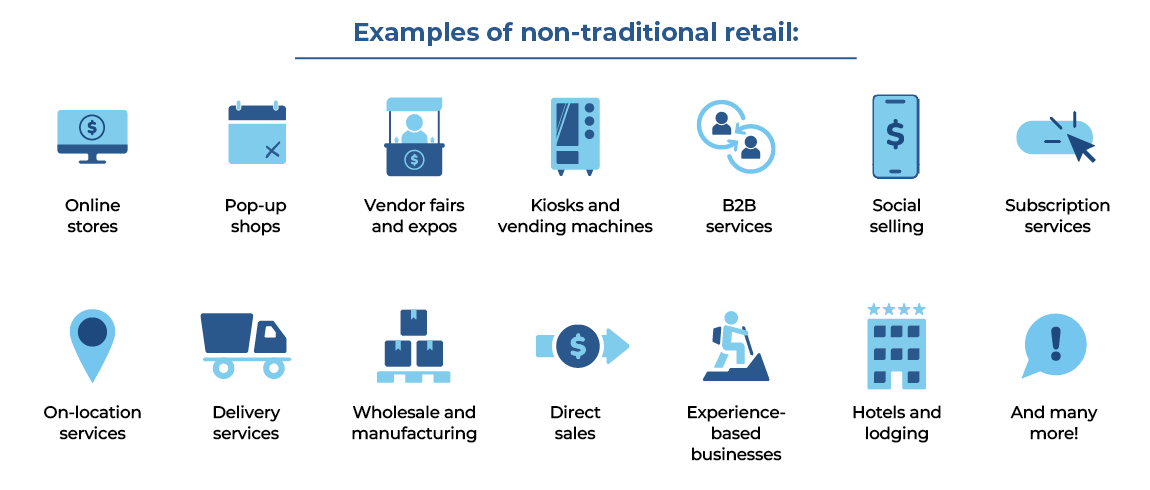
As the nation’s largest state retail trade association, Michigan Retailers Association has an impressive and diverse membership. Our members range from grocers to jewelers, hardware to shoes, dental offices to dog groomers, and more industries than could be contained in a reasonable list. How we define retail has changed as the industry has evolved, and while traditional retail storefronts may still be first to mind when you think of “retail,” non-traditional retail businesses are playing a significant role within the industry.
What is non-traditional retail?
“Non-traditional retail” encompasses the types of businesses who sell goods or services outside of a traditional brick-and-mortar storefront.
These types of businesses have retail elements at their core. At MRA, we welcome non-traditional retailers who are involved in and support the retail industry. Being in the business of selling goods and services, no matter how you do it, requires a set of skills and proper support to succeed.
Why Non-Traditional Retail is on the Rise
As the retail industry evolves, we continue to see more non-traditional retail businesses emerging. Consumers are seeking increased convenience for specialty goods and services. Sometimes, it’s more cost-effective for retailers to take a non-traditional approach to selling their products. These alternative methods of selling can reach expanded audiences, allow for targeted sales in niche markets, and generate buzz and attention that drives revenue.
Consumer behavior is ever-changing, too. As consumers become more familiar and comfortable with non-traditional forms of retail, these methods gain more traction. Fresh, unique shopping experiences will bring new customers in and have past customers returning for more. Entrepreneurial business owners are embracing technology and modern trends to create memorable experiences for their shoppers, and to stand out from their competitors. Take some time to think about how a non-traditional retail approach could help your business.

